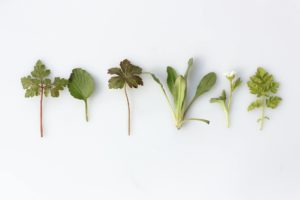You already know all the benefits of intermittent fasting and chances are you’re also familiar with which foods break a fast and which don’t. The answer is usually related to the number of calories and especially carbs in the foods. Supplements and herbs like ashwagandha are a different story though. Now you might ask yourself: Does ashwagandha break a fast?
Sadly, research doesn’t offer a definitive answer to this question. Most herbs are considered foods, so they would technically break a fast. However, it is safe to say 1-2 pills of ashwagandha don’t have enough calories to break a fast. As with anything though, the answer also varies from person to person.
So let’s take a closer look at ashwagandha, what it is, and how it impacts intermittent fasting.
What is ashwagandha?
Ashwagandha is an ancient medicinal herb. It is often referred to as an adaptogen because it can help you manage stress. It has numerous benefits such as boosting brain function, lowering cortisol, and blood sugar levels. It is also a great remedy for those struggling with anxiety and depression and has a calming effect.
This calming effect, however, doesn’t come with sluggishness, so you can take with without any worries during the day. Not only will it negatively impact your ability to focus, but it might also actually help you. There are also claims that ashwagandha supports cardiovascular health and immune function.
Does ashwagandha break a fast?
The answer depends on several factors. Does your fasting method allow the usage of herbs or supplements? For instance, some strict religious fasts might advise against it.
If you’re purely fasting for the health benefits, chances are your method allows herbs as long as they don’t go over 1 gram of carbs. An ashwagandha pill has 0 carbs, while 1 teaspoon of root powder has 1 gram of carbs. In other words, pills are safe and will not add to your overall caloric intake.
Does that mean ashwagandha does not induce an insulin response? There are no studies to properly answer this question, but there is research regarding the use of ashwagandha in diabetes. For instance, this adaptogenic herb was found to improve insulin sensitivity and help manage hyperglycemia.
If you’re fasting for autophagy, you should know adaptogenic herbs like ashwagandha are considered safe, though again, no medical study has been made to help give a definitive answer.
Does ashwagandha have calories?
Yes, it does. Herbs, ashwagandha included, are not calorie-free. For instance, 1 teaspoon of ashwagandha has 1 gram of carbs and 5 calories. In other words, it puts you right at the limit of fast-breaking. The pills, however, are slightly different and in most cases have zero calories and no carbs,
When should you take ashwagandha?
As with most supplements, timing is key in achieving the desired effects. Herbs are a bit more flexible than other supplements, but if you want to maximize their effects, you should still try and time them properly.
Ashwagandha has many benefits: it helps you manage blood sugar levels, manage stress, reduce cortisol, and sleep better. You’ll get all these effects regardless of when you take it. But if your main goal is, for instance, to manage insomnia or poor sleep, taking it in the morning doesn’t make much sense. The effect will be better if you take it 30-60 minutes before bed.
However, if you’re more interested in its blood sugar management properties or if you need help with anxiety and stress during the day, taking it in the morning will maximize these effects.
Outside of your fasting window, you may even consider adding 1-2 teaspoons of ashwagandha to your pre or post-workout smoothies. This will give you a boost of energy and help you have a more effective workout.
Ashwagandha side effects
Believe it or not, even medicinal herbs can have side effects.
May cause hypoglycemia
One of the most concerning ones with regards to intermittent fasting is that it may lower blood sugar levels too much. One of the effects of ashwagandha is helping manage hyperglycemia. But when your blood sugar is normal or even slightly low as it may happen after a long fast, taking ashwagandha could prove disastrous. In other words, if you know you’re prone to hypoglycemia or you’ve had this problem before during a fast, taking this adaptogenic herb may not be the best idea. If you would like to take it for its other many benefits, take it during your eating window.
Might worsen hyperthyroidism
Ashwagandha is also known to increase thyroid hormone concentrations. For many people, this isn’t an issue or may even be a benefit. But if you already have hyperthyroidism, ashwagandha could worsen your condition. If you have hypothyroidism don’t think you can start taking this herb at any minute to improve your symptoms. While it could be beneficial for you, ashwagandha is not a treatment for any thyroid conditions and you should always consult a doctor before taking it if you know you have such health issues.
It can irritate the digestive tract
Too much ashwagandha might irritate the digestive tract causing issues like constipation or diarrhea. If you have an ulcer, you should also skip this herb.
May cause drowsiness
Finally, despite the claims that ashwagandha won’t make you sleepy and won’t impact your day-to-day activities, studies on rats showed it can sometimes cause drowsiness. The effect seems to appear when first taking the herb and may subside after a few weeks,
For this reason, it could be a good idea to start by taking ashwagandha in the evening regardless of the effect you’re hoping to get from it. If you notice you don’t become drowsy, or once this side effect goes away, you can try to take it earlier during the day.
The bottom line
Does ashwagandha break a fast? Most likely no, unless you’re following a type of fasting that forbids any supplements, even herbs. However, the answer also depends on the form in which you take it and the quantity. Keep in mind that ashwagandha does have calories. Pills contain a low enough dose to give you zero carbs, but if you use root powder, for instance, 1 teaspoon is enough to give you 5 calories and 1 gram of carbs. Also, remember the time when you take it could make a difference. Finally, even medicinal herbs can have side effects, so make sure you don’t have any health issues that might be negatively impacted by it.

